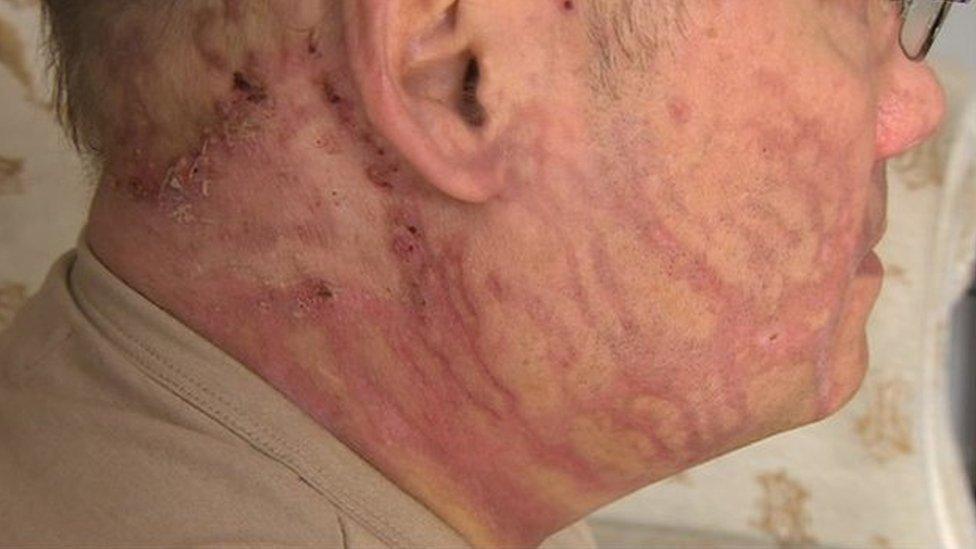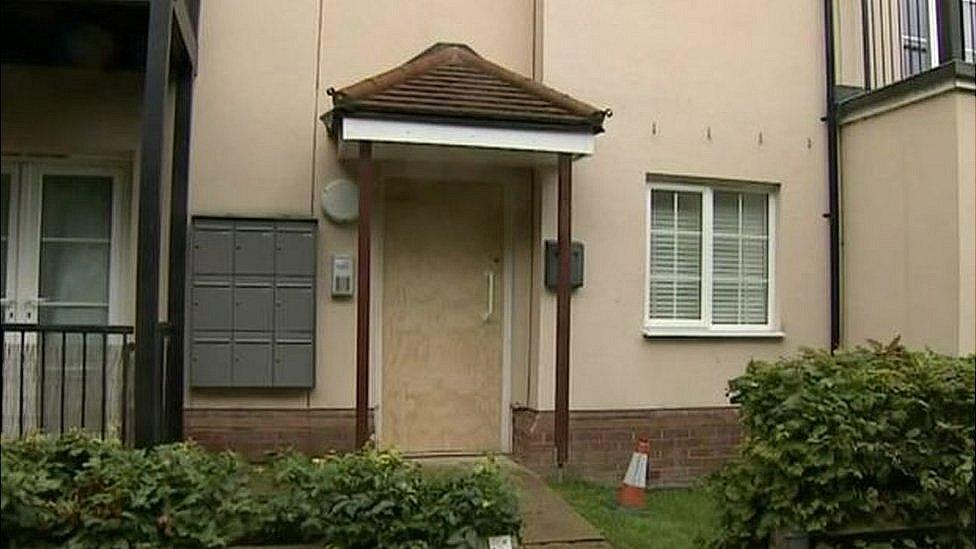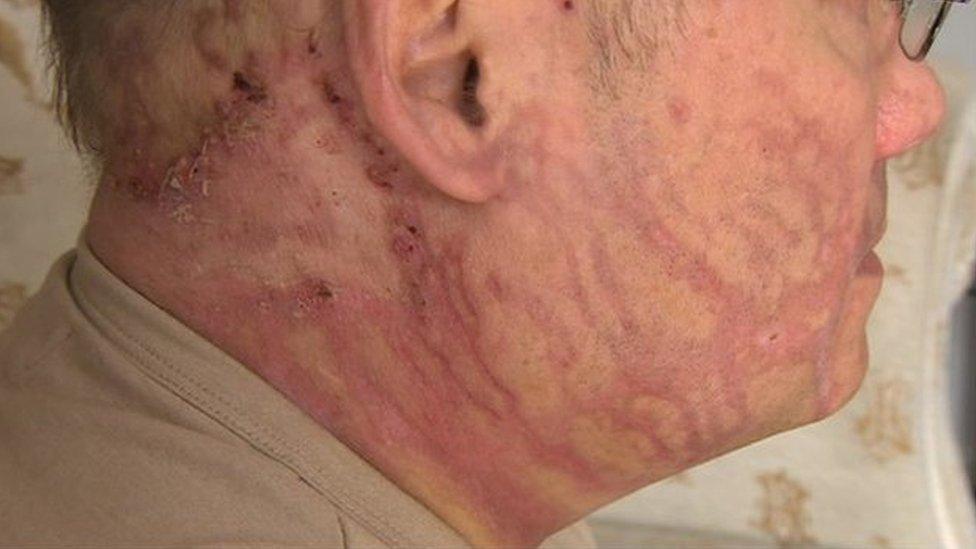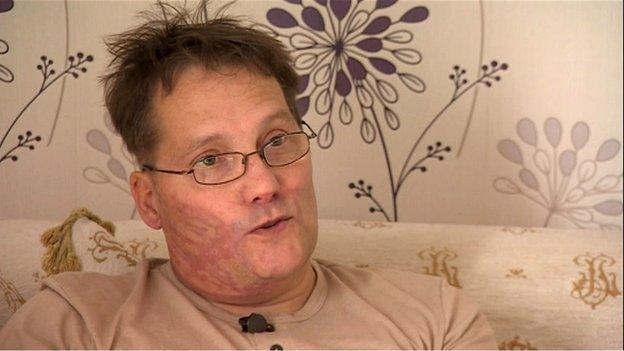Essex acid attack victim warns of rise in attacks
- Published

Wayne Ingold needed a series of operations and skin grafts following the acid attack on 8 August 2014
A man scarred for life after having acid thrown in his face has warned of the rise in corrosive liquid attacks, saying "someone will get killed".
Wayne Ingold, 57, was set upon by two men in Witham, Essex, in 2014.
New figures revealed by the Press Association show corrosive liquid attacks have soared by 30 per cent in two years.
Mr Ingold called for stronger deterrents, including limiting the availability of chemicals to teenagers.
Figures from 23 police forces show more than 500 offences in which people were injured or threatened with harmful substances since 2012.
They include 242 reports of violent crime mentioning acid or other corrosive substances in 2014 and 2015, compared with 186 alleged offences in 2012 and 2013.

The attack took place outside Wayne Ingold's flat on Bramble Road, Witham
In Essex, police reported 28 such offences between April 2014 and November 2015, compared to 12 between April 2013 and March 2014.
Mr Ingold was attacked in a case of mistaken identity outside his block of flats on Bramble Road, Witham. Two teenagers were sentenced following a trial last year.
Other high-profile acid attacks include Naomi Oni suffering burns to her face and chest in east London and Carla Whitlock being doused in Southampton.

Mr Ingold said his skin was like "melting candle wax"
"There has to be a stronger deterrent... one day someone will get killed," said Mr Ingold.
"You can be any age and buy chemicals from big stores because it's battery acid or drain cleaner.
"There has to be some sort of age restriction because they're doing serious damage, they're blinding people, they're ruining people's lives."

Mr Ingold's face has started to recover 18 months on, but the scars still remain
Corrosive substances are legal to buy, but under the Poisons Act 1972 retailers should report any suspicious purchases.
Deputy chief constable Andy Cooke, of the National Police Chiefs' Council (NPCC), said it was "virtually impossible" to implement a ban as many household products are corrosive.
- Published6 November 2015

- Published8 October 2015

- Published8 October 2015

- Published30 September 2015
